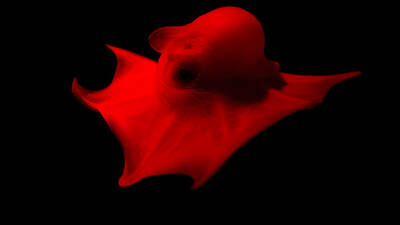On the evening of Dec. 26 last year, New Power Party legislative candidate and Chthonic lead vocalist Freddy Lim, who is running in the Zhongzheng/Wanhua electoral district in Taipei, and his band gave a concert to “calm the soul and defend the nation” in Liberty Square. During the concert, fans constantly spread ghost money, sparking complaint and discussion. Many people wondered why ghost money is spread at Chthonic’s concerts. A netizen by the name “cygnusx523” gave an explanation on the PTT online bulletin boards.
Chthonic’s songs are all rich in meanings. “The songs are replete with Taiwanese history, and the bloodshed and misery that will never be found in the textbooks of the National Institute for Compilation and Translation is retold in Chthonic’s work.”
For example, the song Next Republic retells hundreds of years of Taiwan’s colonization by foreign powers; none of the foreign powers truly respected or protected the Taiwanese. Generation after generation of Taiwanese stood up to oppression and sacrificed their lives for the future of their children and grandchildren. This song tells us all to remember the passion of our ancestors, keep the faith and never stop resisting dictatorship.

Photo: Hu Shun-hsiang, Taipei Times
照片:自由時報記者胡舜翔攝
Supreme Pain for the Tyrant tells the story of Peter Huang, who attempted to assassinate Chiang Ching-kuo in New York in 1970. When he was pinned to the ground, he shouted, “Let me stand up like a Taiwanese!” This was a bet out of years of agony; since no one was willing to come forward to defy Chiang, he put his bet on his gun to see if this could wake up the Taiwanese and if this would create a new possibility for Taiwan’s future. Even if in the end the assassination failed, he strived to maintain his integrity as a Taiwanese.
The best known song, Defenders of Bu-Tik Palace, recounts the story of the tens of thousands of Taiwanese sent to the battlefields in the South Pacific by the Japanese during World War II to fight against the US military. Many died and some survived and returned to Taiwan to reunite with their families. Then the Chinese Nationalist Party came and took over Taiwan. This new regime arrested the returned survivors without warning and executed them in secrecy for being Japanese subjects, leaving their corpses in the wilderness. However, despite the lack of hope, our ancestors were still willing to sacrifice their lives in defiance of the dictators. All Taiwanese should remember and be encouraged by our forefathers’ bravery.
(Liberty Times, translated by Ethan Zhan)
去年十二月二十六日晚上,時代力量台北中正萬華區立委候選人、閃靈樂團主唱林昶佐,在自由廣場舉辦閃靈「鎮魂護國」演唱會。過程中,樂迷不時「撒冥紙」助陣,引起一些民眾的抱怨和討論。很多人疑惑,為什麼閃靈的演唱會要「撒冥紙」?網友cygnusx523便在PTT上給出了答案。
閃靈的歌曲都富有意義,「滿滿的台灣史,你不曾在國立編譯館的課本中看過的血淚,都在閃靈的創作中」。
例如《共和》這首歌,唱的就是台灣數百年來不斷受到外來政權的統治,每個外來主權都沒有真正重視台灣人、沒有保護台灣人,一代代的台灣人抵抗壓迫,為了子孫的未來灑血喪命。這首歌是要大家記住先祖的熱血,要保持希望,不要放棄抵抗威權。
《破夜斬》這首歌,則在描寫1970年黃文雄在紐約刺殺蔣經國的行動。黃文雄當時被壓制在地時大喊:「讓我像台灣人一樣的站起來!」這是積怨下的豪賭,沒有人出頭,就賭這一槍能不能打醒台灣人,賭這一槍能不能打出台灣一條生路。即使最後沒刺殺成功,也要保有台灣人的風骨。
最廣為人知的《暮沉武德殿》,講的是二戰時上萬名台灣男子,被日本送上南洋戰場,與美軍作戰,很多人迎接了死亡,也有人生還回到台灣,與家人重聚。接著國民黨接管了,新政權將這些從戰場返鄉的台灣人,無預警的逮捕,視為皇民秘密槍決,曝屍荒野。但即使萬劫不復,先祖仍為對抗獨裁而犧牲。台灣人應以先人的勇氣自勉。
(自由時報綜合報導)

A: In addition to “Mission: Impossible 8,” what other new movies are in theaters? B: “Final Destination: Bloodlines” and “The Wedding Banquet” are out. The French film “Jane Austen Wrecked My Life” will also open soon. A: The Final Destination horror movie series is so scary that I don’t dare watch it. B: Then how about “The Wedding Banquet,” which is a 2025 remake of the 1993 classic of the same title? Oscar-winning actress Youn Yuh-jung’s performance in it is highly anticipated. A: But as a fan of British writer Jane Austen, I’m more interested to see how her works

The deep waters off the coast of California are home to a bizarre creature: the flapjack octopus. This creature, known for its pancake-like appearance, spreads itself thin on the seabed as a clever survival strategy, making it difficult for predators to spot and capture it. With its unique, umbrella-shaped body formed by webbed arms, the flapjack octopus moves through the water in a graceful manner. It propels itself forward by rhythmically moving its body and contracting its webbed arms. Its pair of ear-like fins, which move independently yet with remarkable coordination, also help it explore the deep-sea environment. These

Bilingual Story is a fictionalized account. 雙語故事部分內容純屬虛構。 I stand by the Miluo River as dusk falls. The court betrayal is too much. I served Chu with loyalty. I forged alliances and fought corruption. But the whispers of jealous courtiers, the murmurs of treason, spoke louder. The king cast me out. The water looks calm. It promises peace. I step in. The river is cold against my legs. I hear shouts behind me — fishermen calling my name. I keep walking. The calls grow louder, but I do not turn around. The water rises to my chest. It pulls at me. I

Continued from yesterday(延續自昨日) https://www.taipeitimes.com/News/lang Many people may be familiar with flapjack octopuses thanks to Pearl, a charming character from the Pixar film Finding Nemo. However, her portrayal presents several scientific inaccuracies. In reality, flapjack octopuses are deep-sea creatures, which are unsuitable for the brightly lit shallow reef environment depicted in the film. Their primary defense mechanism relies on their reddish coloration, which would be ineffective in the well-lit shallows. Pearl’s famous line, “You guys made me ink,” is another fictional detail that is not consistent with the observed actions of real flapjack octopuses. As common as it is in many other octopus